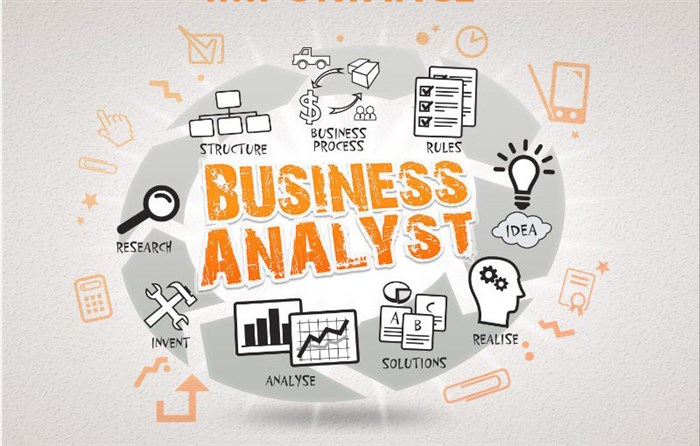
indispensable to businesses as they help them find solutions to some of the most complicated problems. This is why they are in high demand across the globe.
Business Analyst is a promising profession for those seeking a stable and secure career option. The salary packages are attractive, and the industry is seeing exceptional growth in the recent years. However, one needs considerable technical skills to become a successful business analyst.
This article discusses the role of a business analyst, their responsibilities, the technical skills one needs to become a proficient business analyst, and how can one enter the profession.
Who are Business Analysts?
Business analysts play an integral role in the organization’s projects and are responsible for arranging strategies, documenting business processes, and evaluating different business models through data analysis. However, their primary responsibility remains to find solutions for business challenges.
They use data-driven insights to provide data-driven solutions to the stakeholders. They also help the IT department test new solutions and bridge the gap between technology and other organizational teams.
Responsibilities of Business Analyst
Business analysts have multiple responsibilities in an organization. We have listed the primary ones.
- Understand business goals and objectives to identify the problems and design effective solutions.
- Collaborate with development teams to design new solutions.
- Assist IT teams in modifying existing systems of the organization.
- Interact with stakeholders to discuss innovative solutions.
- Help implement new features as per business requirements.
- Ensure that the solutions delivered by the organization are aligned with client requirements.
- Document project findings and use data visualization.
- Create user manuals for smooth adaptation of new systems.
- Look for areas of improvement in existing business processes.
- Provide training to staff of the organization.
Talk to Our Counselor Today
Top 10 business analyst technical skills required by employers
Now that you have an idea of the role and responsibilities of a business analyst, let us discuss the top 10 business analyst skills that are required to be successful.
MS Office Applications
Every business analyst must thoroughly understand all MS Office applications. They should be well-versed in Word, Powerpoint and Excel. Business analysts will frequently use Excel during their job. Excel assists analysts in doing calculations, making analyses, collecting and summarizing different datasets, and creating revenue growth models. Analysts can use excel to create dynamic reports that provide a clear view of business problems and enable them to design innovative solutions.
Knowledge of Operating Systems
Business analysts work closely with software and operating systems. It is recommended to have adequate knowledge of all the common operating systems. Being aware of the basic functions of all operating systems and their capabilitie enables analysts to do their job successfully.
Software Testing
One of the significant responsibilities of a business analyst is to test software or software testing and provide thorough feedback. This means they should understand different testing procedures to determine which test will produce the most useful results. Business analysts must be familiar with both automated and manual testing. They should have the required knowledge of test scripts to conduct relevant tests.
Programming Language
Business analysts use different techniques to draw conclusions and design unique solutions to address business problems. They must have programming knowledge to do that quickly and accurately. Knowledge of coding languages such as R and Python can help them visualize, manipulate and analyze data. Analysts also need to have a basic knowledge of SPSS or SAS. Learning programming languages such as PHP or Java are also beneficial.
Read: Business Analyst Job Description, Roles and Responsibilities
Database and SQL
Database and business analysts go hand-in-hand. Business analysts use different databases to store it and use it at their convenience as they work with structured data. Business analysts need to understand databases such as MySQL, Oracle, Microsoft SQL, and other relational databases. Experience with SQL allows analysts to analyze data more effectively. They can also manipulate it when they want. It is recommnded to know non-relational, cloud, and real-time databases.
Research Skills
A business analyst needs to have exceptional research skills. Much of their work depends on how good their research skills are. These skills help find innovative solutions to unique business problems. Business analysts regularly research and document business challenges, make hypotheses, and suggest possible solutions. With good research skills, they can gather information from reputable sources and back their findings with data.
Communication and Interpersonal Skills
Communication and interpersonal skills are crucial to become a promising business analyst. Business analysts regularly interact with development teams, stakeholders, and clients. The key to successful interactions is excellent interpersonal and communication skills. It is integral for business analysts to be clear, concise, and accurate while communicating. They should be able to convey their point succinctly using verbal and written communication.
Analytical and Critical Thinking
Analytical and critical thinking enables business analysts to closely understand client requirements and challenges. Only by understanding their client's needs can analysts devise practical solutions. An analytical mind can help them to prioritize and reach their goals efficiently, even when circumstances are less ideal.
Cost-Benefit Analysis
Since business analysts are present for the project lifecycle, they must do cost-benefit analyses at different levels. Even before an organization takes on a project, business analysts perform a cost-benefit analysis to determine whether it will benefit the organization to take on the project. Another skill necessary for business analysts is negotiation. Negotiation skills determine the vision and future of a project. They help decide which tasks are on the priority list and help make effective technical decisions.
Documentation
Business analysts are required to document all the important stages and findings of a project. Therefore, they should know how to document the processes and present the facts clearly and concisely. The project's technical lingo should be translated in a language readily comprehended by stakeholders and clients. Good documentation allows organizations to consult their past projects while facing a similar problem in the future. Business analysts should know system, user, process, and source code documentation.
How Can You Develop These Skills?
Now that you know the skills needed for a business analyst, let us discuss how you can develop them.
- Learn: Attend workshops and trainings to learn the required technical skills. You can also opt for online courses to succeed.
- Practice: It is essential to practice to develop any skill. For example, to develop communication skills, practice communicating with friends and family, and attend seminars to learn how people do it.
- Improve: Engage in conversations with like-minded people. Discuss developments, learn from them, and ask questions about emerging concepts and technologies.
- Review: Always spare time to keep up with the latest developments. Read, research and analyse to understand how the industry works.
Why are Technical Skills Important for Business Analysts?
Technical skills are crucial for all business analysts. The role of a business analyst covers a massive area and requires them to interact with various elements of the organization. All these departments are experts in one specific domain. However, a business analyst should have a basic understanding of all existing processes and policies. Only by doing this can they design solutions that address the problems faced by the organization.
Technical skills enable business analysts to do their work quickly and efficiently. It helps them devise solutions that help the organization attain its goals faster and efficiently solve client challenges.
Must Read: Top 10 Most Popular Business Analysis Techniques
How to Become a Business Analyst?
You can take the following steps to become a business analyst.
Set a Goal
The first thing to do is to set a goal. When you have a clear goal, you can start developing a path to achieve that goal. Understand the basics, roles, and responsibilities of a business analyst.
Get a Degree
You need at least a bachelor’s degree to become a business analyst. However, depending on your goal, you can also do a master’s degree or a certification course. This will help you stand out from the competition.
Develop Skills
A business analyst should have many skills, as discussed above. Learn and develop those skills early in the game to succeed quickly.
Get Certifications
Getting different certifications will help you stay ahead of your competitors while also ensuring you stay updated with the latest developments in the analytics world. You can also learn newer techniques and analysis tools, making you more efficient at your work.
Gain Experience
Do some real projects to get hands-on experience in business analytics. You can take on freelance projects or do an internship to begin with.
Get a Job
Create a resume highlighting your skills and experience. Start looking for vacancies and apply for jobs.
Conclusion
Business analysts are essential in all industries today. They help bridge the gap between technology and people in an organization. They also assist stakeholders and employees in their jobs. It is a lucrative field with great prospects for growth. Make sure to hone your technical skills to succeed as a business analyst.
Talk to Our Counselor Today







COMMENT